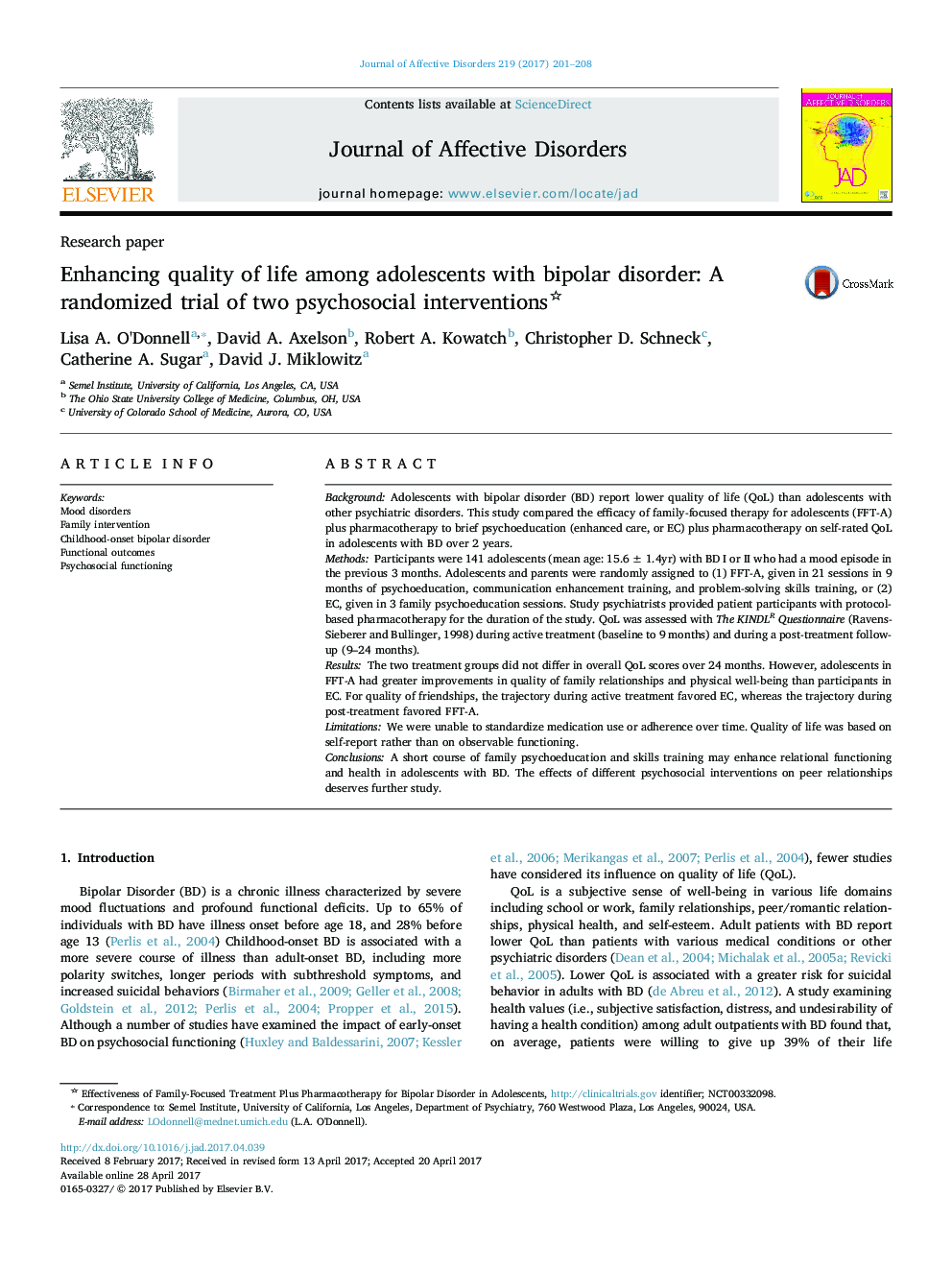| کد مقاله | کد نشریه | سال انتشار | مقاله انگلیسی | نسخه تمام متن |
|---|---|---|---|---|
| 5721894 | 1608106 | 2017 | 8 صفحه PDF | دانلود رایگان |
- Compared quality of life in family-focused therapy versus psychoeducation in BD.
- Family-focused therapy had better quality of life for family and physical well-being.
- Brief psychoeducation had better quality of friendships in active treatment phase.
- The trajectory during the post-treatment phase favored family-focused therapy.
BackgroundAdolescents with bipolar disorder (BD) report lower quality of life (QoL) than adolescents with other psychiatric disorders. This study compared the efficacy of family-focused therapy for adolescents (FFT-A) plus pharmacotherapy to brief psychoeducation (enhanced care, or EC) plus pharmacotherapy on self-rated QoL in adolescents with BD over 2 years.MethodsParticipants were 141 adolescents (mean age: 15.6±1.4yr) with BD I or II who had a mood episode in the previous 3 months. Adolescents and parents were randomly assigned to (1) FFT-A, given in 21 sessions in 9 months of psychoeducation, communication enhancement training, and problem-solving skills training, or (2) EC, given in 3 family psychoeducation sessions. Study psychiatrists provided patient participants with protocol-based pharmacotherapy for the duration of the study. QoL was assessed with The KINDLRQuestionnaire (Ravens-Sieberer and Bullinger, 1998) during active treatment (baseline to 9 months) and during a post-treatment follow-up (9-24 months).ResultsThe two treatment groups did not differ in overall QoL scores over 24 months. However, adolescents in FFT-A had greater improvements in quality of family relationships and physical well-being than participants in EC. For quality of friendships, the trajectory during active treatment favored EC, whereas the trajectory during post-treatment favored FFT-A.LimitationsWe were unable to standardize medication use or adherence over time. Quality of life was based on self-report rather than on observable functioning.ConclusionsA short course of family psychoeducation and skills training may enhance relational functioning and health in adolescents with BD. The effects of different psychosocial interventions on peer relationships deserves further study.
Journal: Journal of Affective Disorders - Volume 219, September 2017, Pages 201-208
